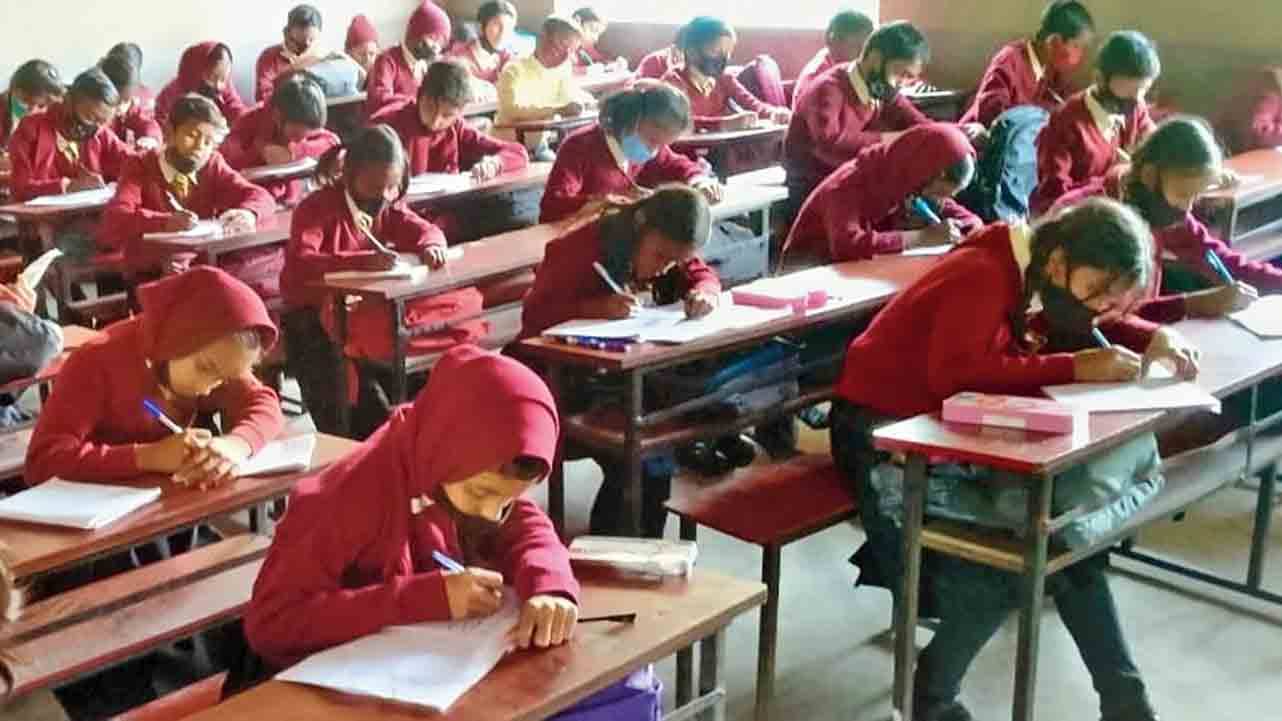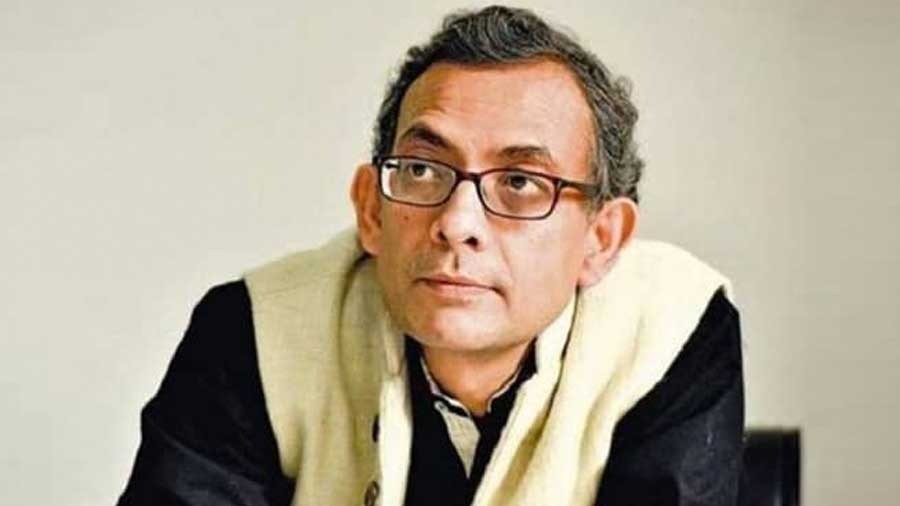After a long spell of only-online classes, the learning gaps are apparent in children in the city as well as districts.
A Class IX student failed to solve a geometry problem in class because he had forgotten the classification of angles.
A teacher in Class VIII taught a chapter in Bengali but barely 40 per cent of the students could answer the questions asked after the lesson was over.
A Class VIII student was given a sum in which she had to convert hour to minute. The girl had to be told by the teacher that she needed to multiply.
Students from Classes VIII to XII are back in classrooms from February 3 but teachers across several institutions said many of them had suffered learning loss - their level of understanding or knowledge is not equivalent to the standard they are in.
The head of a school in a suburb said teachers had reported that a sizeable section of students is not “responding” to questions in class.
“The advantage of in-person classes is that teachers can make an assessment of whether the students are following the lectures by studying their faces. There are students who are not following lectures anymore. Their level is not what it should be in the class they are in,” said Subhra Chakraborty, headmistress of Howrah Jogesh Chandra Girls’ School.
Chakraborty said the two-year gap took many students away from an “atmosphere of learning”. Their vocabulary has shrunk and their communication has become poorer.
She said she had asked teachers to simply talk to the students to get them used to the classroom ambience.
Many students in suburbs did not have access to regular online classes because of lack of mobile phones.
A large number of parents were too worried about losing jobs, or too busy looking for one after having been retrenched during the pandemic, to be bothered about their children’s education.
The attendance in online sessions was better among students of Classes XI and XII, who had better access to devices, teachers in several South 24-Parganas schools said.
Arpita Chatterjee, who teaches at a school in Tangra where most children are from families of tannery workers and rag pickers, said a student in Class VII was intellectually in Class V.
She is conducting remedial classes in the evening and asking students to write a song to check their grasp of spellings.
“The spelling skill of those who had not attended any class was poor,” she said. “Students are sitting with a sum not knowing how to solve it. They have forgotten the steps.”
A headmaster in Murshidabad said two years of online classes had impacted meritorious students as well as not so meritorious ones.
“Meritorious students are failing to reach the level of excellence they would have reached otherwise. For the ones who are below average, the loss is huge. The challenge for teachers is whether to address the first student in class or the last. The difference between them is huge,” said Jahangir Alam, headmaster of Laskarpur High School.
The school heads this newspaper spoke to were unanimous that rigorous remedial classes were needed.
In a class in Hingalganj in North 24-Parganas, a teacher asked questions after completing a lesson in Bengali.
“Barely 40 per cent responded. Only when they respond, be it a right or wrong response, can we understand whether they are following a lesson or not,” said a teacher.
Pulak Roychowdhury, headmaster of Kanaknagar SD Institution in Hingalganj, said the students’ listening skills and ability to comprehend had been impacted.
“Those who did attend online class faced interruptions because of poor connectivity. In between the interruptions they could not hear clearly,” he said.

